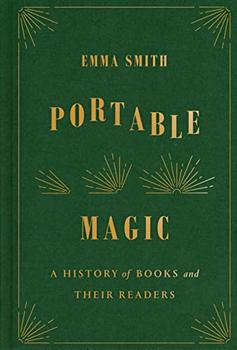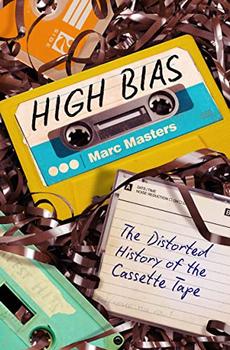Summary | Excerpt | Reviews | Beyond the book | Read-Alikes | Genres & Themes | Author Bio

A History of Books and Their Readers
by Emma SmithA history of one of humankind's most resilient and influential technologies over the past millennium—the book.
Stephen King once said that books are "a uniquely portable magic." Here, Emma Smith takes readers on a literary adventure that spans centuries and circles the globe to uncover the reasons behind our obsession with this captivating object.
From disrupting the Western myth that the Gutenberg Press was the original printing project, to the decorative gift books that radicalized women to join the anti-slavery movement, to paperbacks being weaponized during World War II, to a book made entirely of plastic-wrapped slices of American cheese, Portable Magic explores how, when, and why books became so iconic. It's not just the content within a book that compels; it's the physical material itself, what Smith calls "bookhood": the smell, the feel of the pages, the margins to scribble in, the illustrations on the jacket, its solid heft. Every book is designed to influence our reading experience—to enchant, enrage, delight, and disturb us—and our longstanding love affair with books in turn has had direct, momentous consequences across time.
Revelatory and entertaining in equal measure, Portable Magic will charm and challenge literature lovers of all kinds as it illuminates the transformative power and eternal appeal of the written word.
Maintaining a razor-sharp focus on the materiality of the book — more precisely, the "undersung inseparability of book form and book content," which she terms "bookhood" — Smith explores familiar as well as new topics and themes. She brings scholarly vigor to issues around the reading, publication and usage of books and sets them in geographical, temporal and historical contexts. All this is done with a conversational levity that is both beguiling and surprising: I did not expect to be laughing out loud at this book. Smith situates each main idea in a bookish anecdote, then brings in interesting twists and turns of events with journalistic flair. You can almost imagine her speaking to a hushed and rapt audience...continued
Full Review
(586 words)
This review is available to non-members for a limited time. For full access,
become a member today.
(Reviewed by Tasneem Pocketwala).
 Perhaps it's a quirk of readers, but it seems almost natural to be drawn to other people's books — whether in images on social media or in someone's home. Books offer a snapshot of who a person is, presenting a quick glimpse of what influences them, what they might think about and what holds lasting meaning for them.
Perhaps it's a quirk of readers, but it seems almost natural to be drawn to other people's books — whether in images on social media or in someone's home. Books offer a snapshot of who a person is, presenting a quick glimpse of what influences them, what they might think about and what holds lasting meaning for them.
So it isn't surprising when people are mindful of the appearance of their very visible bookshelves. When the COVID-19 pandemic hit and many businesses shifted work online over Zoom calls, some used their bookcases as their backgrounds. It seemed a neutral, formal-looking choice, but it was also in some instances a way to implicitly suggest erudition.
Colloquially termed "shelfies," personal images of (often ...
This "beyond the book" feature is available to non-members for a limited time. Join today for full access.

If you liked Portable Magic, try these:

by Evan Friss
Published 2024
An affectionate and engaging history of the American bookstore and its central place in American cultural life, from department stores to indies, from highbrow dealers trading in first editions to sidewalk vendors, and from chains to special-interest community destinations

by Marc Masters
Published 2023
Marc Masters explores the history of the cassette tape from its invention in the early 1960s to today.
Outside of a dog, a book is man's best friend. Inside of a dog it's too dark to read.
Click Here to find out who said this, as well as discovering other famous literary quotes!